The Link Between Mental and Physical Wellness
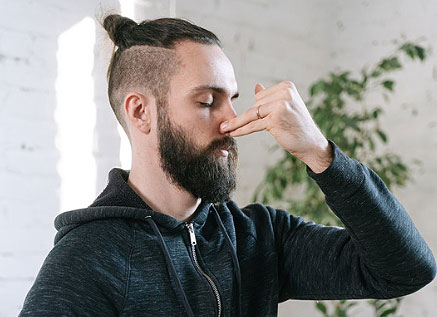
It’s no secret that some things go together beautifully – like cake and coffee or quinoa and chickpeas. But did you know that your mental health and physical health are closely tied? In fact, these two aspects of health are linked in a two-way relationship.
Let’s explore the profound connection between mental health and wellbeing and physical wellbeing, along with some steps you can take to enhance both.
Why is mental health important?
Mental health is an essential part of overall wellbeing. Along with spiritual, physical and emotional health, being mentally healthy allows you to live authentically and fulfill your potential. Good mental health and wellbeing enable you to:
- manage better with the stresses of everyday life
- realise your abilities
- work productively and contribute to your community.
Positive mental wellness is especially important for young people because it helps them form healthy relationships, learn, communicate effectively, and adjust to change as they progress into adulthood.
Exercise: A Catalyst for Physical and Mental Resilience
Exercise is good for your body, but it can also provide a significant boost to your mental health. Physical activity triggers the release of endorphins, meaning you’ll get the feel-good effects of these natural chemicals your body produces to help alleviate pain and stress.
Regular physical activity can help to:
- reduce stress and lift your mood
- improve your memory and focus
- reduce mental health symptoms associated with conditions such as depression and anxiety
- support recovery from mental health issues
- enhance your sleep (more about why sleep matters for mental health below).
For children, adolescents and young adults, engaging in physical activity is a potent tool for managing the challenges that can come with this phase of life. Studies indicate that in children and adolescents, regular exercise can have a wide range of benefits, including reduced anxiety and depression symptoms, stronger academic performance, healthier interpersonal relationships, enhanced self-esteem and self-confidence, and better mental health.
Quality Sleep: A Powerful Force for Mental and Physical Wellbeing
Adequate sleep is a cornerstone of good health. As you sleep, your mind and body rest, repair, and find equilibrium.
Quality sleep promotes your mental health and wellbeing by helping you to:
- feel rested and alert – after a good sleep, you wake feeling refreshed and ready for the day ahead.
- cope with stress – sleep helps to regulate stress hormones, helping you deal better with the pressures of daily life.
- concentrate and remember – quality sleep allows you to focus and tune out distractions better. Sleep is also vital for consolidating memories, helping to support learning.
Improving the quality of your sleep may also help to prevent relapses if you have mental health concerns. In children and young people, quality sleep is crucial for good mental health. Studies have shown that improving sleeping problems in kids, and young adults who report good sleep quality, have lower levels of stress, anxiety and depression.
Start Your Journey with a Telehealth Session
Ready to find your path to holistic wellbeing? Our experienced team of professionals are committed to supporting your journey to transformation by helping you discover the powerful unity of mind, body and spirit.
We focus on helping you find and reclaim your authentic self and live with vitality, purpose and joy.
Counselling in the digital age

Seeking counselling is a big decision for most people. It can be hard to recognise that you need help. And once you are willing to see a counsellor, you have to find the right one – someone with the right skills, in the right location and with availability that matches your schedule.
Booking a telehealth appointment with a counsellor can help you overcome many of those barriers. Let’s take a look.
What is counselling?
Counselling is a form of talk therapy led by a trained mental health professional.
Counsellors help you to understand what’s going on in your life and explore new ways of thinking, relating and moving forward. They give you a safe place to explore your thoughts, feelings, reactions or underlying beliefs about yourself and the world around you.
A counsellor could help you:
-
- Express painful feelings or experiences
- Change self-sabotaging habits
- Learn how to accept yourself
- See situations from a new perspective
- Learn how to manage conflict well
- Build healthier relationships
- Relieve symptoms of anxiety or depression
- Gain a stronger sense of identity and purpose.
Traditionally, counselling has taken place in the counsellor’s office – usually a nice room with a comfortable sofa, a vase of flowers and a box of tissues. But the era of telehealth has changed all that.
What is telehealth?
Telehealth means having a consultation with a healthcare provider by phone or video call. It’s been with us for a while but it shot to prominence in the early days of the pandemic when social distancing was vital.
Telehealth is ideally suited to counselling. After all this is ‘talk therapy’ where there’s no need for a physical examination or hands-on treatment.
What are the benefits of telehealth counselling?
Telehealth offers some key benefits that make it an ideal choice for many patients.
Improved access
Many, many Australians are in need of mental health care, resulting in long waiting lists. The Australian Psychological Society reports that now 1 in 3 psychologists has closed their books to new clients (before the pandemic it was only 1 in 100).
You may have tried to get in to see a local psychologist or counsellor and been told to come back in a few months. With telehealth, you can often get help much sooner because you’re not limited by geography.
A wider choice of providers
To attend a counselling appointment in person, you have to choose a counsellor in your local area.
Telehealth gives you a much wider choice of providers. You can select a counsellor who’s right for you, not simply one who’s nearby.Greater convenience
Seeing a counsellor in person takes time. The appointment itself might last an hour but the travel time there and back could easily double the time commitment. Then there’s the cost (and hassle!) of parking.
Depending on your other commitments, you may need to negotiate time off work or find someone to look after the kids. Often you’re rushing out the door just to get to your appointment on time.
You can sidestep all that with telehealth. You choose a location that suits you – all you need is some privacy and a phone or internet connection.
Continuity of care
Continuity of care is important. To open up about some of the deeper issues in your life, you need to trust your counsellor. And trust is earned over time. Regular appointments also help to keep you on track and making progress.
When there’s a lot of planning and hassle involved in getting to your counselling appointment, you’ll tend to start postponing sessions. It’s understandable – there’s only so much you can squeeze into the week.
Telehealth makes continuity of care easier. You can keep seeing your counsellor even when you:
- Move to a new location
- Are away on business
- Don’t feel well enough to attend an in-person appointment
- Are having a crazily busy week.
Removing stigma
Our society is becoming more understanding of mental health conditions but there can still be a sense of stigma attached. And that can make it difficult to walk into a building that’s clearly a counselling centre.
Telehealth is more private. It’s simply another phone call or another Zoom meeting. Everyone has those!
Come to Altru Health
If you’d like to talk through some of your struggles, we’d love to listen.
Altru Health is a 100% telehealth service that provides a safe space for you to explore your true self.
We deliver professional counselling alongside movement therapies and holistic wellness practices that help to integrate your body and mind. We help you nurture self-compassion and learn to accept yourself for the unique and wonderful person you are.
Trauma counselling and somatic practices
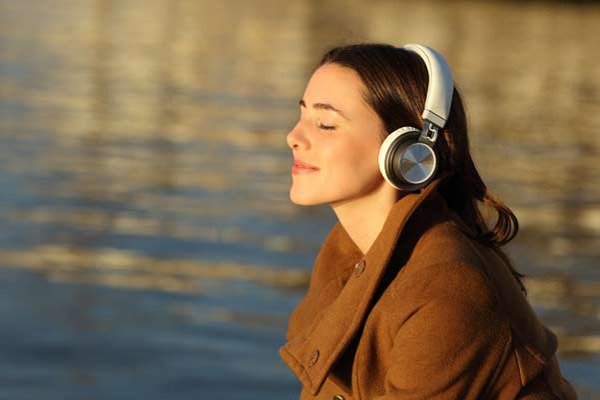
When you’ve been through a frightening or distressing situation, you may experience a particular type of psychological harm known as trauma – and that can affect your ability to function normally.
What is trauma?
Traumatic events are ones where you feel under serious threat. They may include:
- Violence – armed robbery, war, terrorism
- Natural disasters – bushfires, earthquakes, floods
- Serious accidents
- Life-threatening illness or injury
- Personal trauma – domestic violence, child abuse, rape
- Traumatic grief – suicide or other sudden death of a loved one
- Second-hand trauma – when someone you care about is involved in a traumatic event.
What are the symptoms of trauma?
Trauma symptoms can affect your body, mind, behaviour or feelings.
| Trauma symptoms | |||
| Physical | Cognitive | Behavioural | Emotional |
|
|
|
|
No two people respond the same way to a traumatic situation. Some people find that their symptoms gradually subside over a few weeks while others find that their life is disrupted for much longer.
For some people, though, trauma may trigger more serious conditions such as
- Post-traumatic stress disorder
- Anxiety conditions
- A reliance on alcohol or other drugs.
Your response is influenced by many different factors including the event itself, your personality and coping mechanisms, your support system and other sources of stress in your life.
What is somatic therapy and how can it help trauma recovery?
‘Soma’ is a Greek word for the body, as distinct from the psyche (the mind).
The mind and body are closely connected. Let’s say you have some pent-up anger as a result of your trauma. That’s probably seeping out into many aspects of your life, affecting your relationships or job security. Teaching you some anger management skills could help – but only a little bit. You need support to release the pent-up anger so you can move forward.
Traditional approaches such as counselling and psychological therapy focus on the mind. You’re encouraged to talk, to become aware of disturbing thoughts, to identify patterns of behaviour and to work on changing them.
In contrast, somatic therapy starts with the body. You’re encouraged to become aware of your body’s sensations and learn to feel safe in it. From there, you can start to explore your feelings, thoughts and memories.
The idea is to bring the mind and body together using a range of therapeutic approaches such as:
- Body awareness: Tuning into your body and identifying areas of tension, discomfort or numbness.
- Releasing tension: Through breathwork, gentle movement or body-based mindfulness techniques
- Resourcing: Identifying what makes you feel calm and safe, such as certain people or places
- Pendulation: Guiding you from a relaxed state to feelings similar to the ones you experienced in your trauma then helping you relax again
- Titration: Guiding you through a traumatic memory, noting the accompanying physical sensations and addressing them right there.
There are many other tools, including acupressure, hypnosis or even dance.
How does somatic therapy help trauma survivors?
Somatic therapy can give you a sense of agency in your healing process and help you regain a feeling of control over your body and emotions.
This is significant since trauma often involves situations where you’ve been deprived of control. Recovering that can be quite empowering.
As already noted, the mind and body are intertwined. A comprehensive trauma recovery plan needs to address both aspects.
Somatic therapy is a body-based treatment that aims to help you release pent-up emotions that are keeping you ‘stuck’. It complements mind-based therapies like counselling and meditation.
How can Altru Health help?
At Altru Health, we focus on a holistic approach to recovery. Our practice incorporates counselling, somatic therapy and wellness practices such as yoga.
Best of all, we provide it all through telehealth. It’s easy and accessible, saving you the trouble of trekking across town to your appointments. It also means you can access our services no matter where you are.
We can’t change what’s happened to you. But we can help you change what comes next and help you move forward with confidence in who you are.
References
- Australian Psychological Society, Trauma, https://psychology.org.au/for-the-public/psychology-topics/trauma, [Accessed 16 November 2023]
- Harvard Health, What is somatic therapy? https://www.health.harvard.edu/blog/what-is-somatic-therapy-202307072951, [Accessed 16 November 2023]
Amaya Iriondo
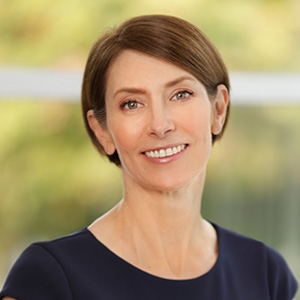
About me
Born in Melbourne, lives in Brisbane have lived in the Northern Territory
3 Young adult children (22, 19, 18)
Married twice (two stepchildren 15, 13)
1 dog, 1 cat and numerous fish
Area of Experience
- Complex trauma, grief, disability, abuse, substance abuse
- Couples, mediation
- Work from a strengths based approach
- Solution focused, narrative therapy and some somatic therapy when needed
- Young adults, adults
Qualifications
Master in Counselling, Training in trauma, dissociation, grief, NAMAS accredited mediator, FDRP
Cecilie Schiotz
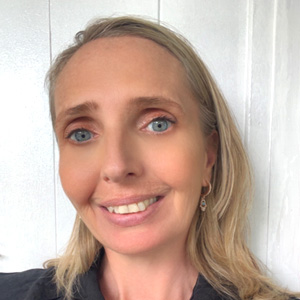
About me
I enjoy a balanced life amongst small town tranquillity with family, cats, goldfish & wildflowers, along with diverse roles in the extended community that keep me inspired, growing & connected. Originally from Copenhagen, I value cultural traditions known by some as “hygge”. My passion for humanity is essentially where my heart has always been, as a little child my biggest dream was for the “whole world to hold hands at once”, and I have lived to the essence of this in all that I be & do.
Area of Experience
Counselling – Individuals/Couples/Families; Wellness Recovery (health/trauma); Community Nurse; Psychosocial/Mental Health; Family Practitioner; NDIS Accredited; Dance Therapy; Creative Expression; Women’s Business (spirituality, workshops, therapeutic engagement).
Qualifications
Bachelor of Social Science (Human Services); Diploma of Enrolled Nursing (currency of practice, AHPRA registration); Dance Therapy/Teacher training (Wu Tao); Mental Health/AOD; Adv. Disability Studies.
Jules Morris

About me
While being an Australian and British Citizen, I grew up in Kenya and the
experiences I have encountered over the years really taught me what mental health
was and the power and complexities of the mind. These experiences ignited my
passion to study the brain (the most complex organ in the universe), human
relations, and the correlation between brain health and gut health, the holistic picture
of a person and their situation. I soon realised I should use these experiences and
my passion for helping others from all backgrounds and diversities overcome
adversity through counselling. I love people, sharing good food in the community,
connecting, expressing creativity, exercise, self-care activities, breathwork,
meditation, journaling, promoting life longevity, following my purpose, and hot & cold
therapy to name a few! I hope to act as a tool to serve clients in their own self-development and healing journey.
Area of Experience
Working with adults, supporting clients in decision-making processes, working with
clients with anxiety and depression, working with people with mental health
adversities, providing loss and grief support, suicide prevention, expressive
therapies, taking clients through addiction, working with diverse people, promoting
Aboriginal and/or Torres Strait islander cultural safety. Person Centred therapy,
Solution focused therapy, Cognitive behavioural therapy, Acceptance, and
commitment therapy.
Qualifications
Professional Counsellor, Certified ACA member of the Australian Institute of
Professional Counselling. Expressive therapies, Taking clients through addiction,
Suicide Prevention, and Trauma informed care.
Sharyn Dorber
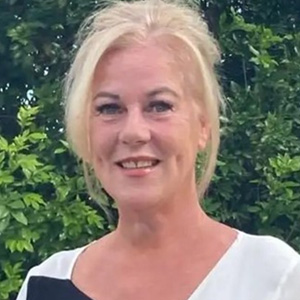
About me
I am based in the Lockyer Valley, Queensland. I have two children (young adults), three grandchildren, an extensive family network and a few animals. I enjoy many aspects of life: music, cooking, gardening, riding, cars, architecture, learning new things and furthering my education, social gatherings and meeting new people, training my dog and of course, spending quality time with my family.
Area of Experience
Caring & mature multi-level Counsellor providing guidance & working with individuals who have diverse needs regarding life transitions – grief & loss, relationships & family issues, loneliness, stress & anxiety, depression, parenting pressures, suicide – emotional, physical, or substance & self-esteem issues.
CBT, ACT, Mindfulness
Strength Based Therapy & Person-Centred approaches focus on working with the client to accept who they are, this enables me to work with individual clients, couples and families from diverse backgrounds & experiences, offering the support & understanding they need in order to evolve & make changes in their lives, make healthy choices & change patterns of behaviours. .
Supporting individuals to heal, energise, & become aware of their inner strengths. Provide a neutral safe space, listening to their concerns & customising a therapy plan with a range of approaches to adapt to the client’s interests.
Qualifications
- NDIS Quality & Safeguards Commission – ‘Quality, Safety & You’ & ‘Supporting Effective Communication
- Australian Institute of Professional Counsellors – Working with Children and Families Training
- Care · Collaborate · Connect: Suicide Prevention Training
- Sports Integrity Aust – PBTRs – Child Protection and Safeguarding
- Counsellor at White Cloud Foundation
- Australian Counselling Association and Australian Register of Counsellors & Psychotherapists
- Advanced Major study in Relationship Counselling & Conflict Resolution,
- Child Development & Effective Parenting & Mindfulness-Based Therapies
Leanne Scurry
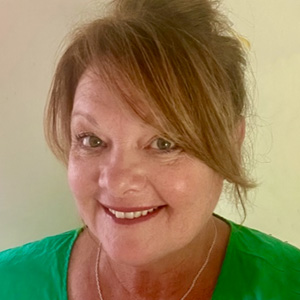
About me
I am a proud Queenslander with 3 beautifully wild teenagers, 1 husband & a chocolate fur baby. I love family holidays & girl’s weekends away even more. Walking in nature is my happy place.
Area of Experience
Child & family Counselling, holistic approach incorporating art.
Qualifications
ACA Registered Counsellor with Psychology degree & Grad diploma in Counselling with specialisation in child, youth & family therapy. Post Graduate certificate courses in art therapy.
Manny Iakopo
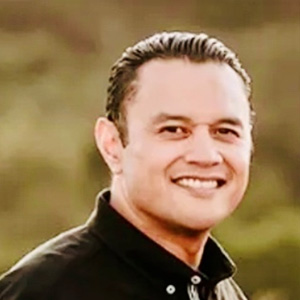
About me
I’m passionate about helping people heal and live their best lives. I’m a big fan of sports, especially footy and basketball. My clients appreciate my funny and warm personality, and my ability to connect with them on a personal level.
Area of Experience
Working with Adults and Teens, counselling client who present with low, medium, and complex needs.This is achieved using evidence-based treatments; Person Centred Therapy, Cognitive Behavioural Therapy, Dialectical Behavioural Therapy, Acceptance Commitment Therapy, Motivational Interviewing, Schema Therapy, Family Systems Therapy, Trauma Based Therapy & Narrative Therapy.
Providing counselling for pacific Island youth, adults, couples families, and facilitating Psychoeducation to promote positive mental health in high schools and juvenile centres.
Addiction and recovery, Anxiety & Depression, Trauma Therapy, Cultural Framework, Problematic Behaviours, Gottman Therapy.
Queensland Correctional Services (QCS) – facilitating/counselling ‘EXPLORE/CONNECT’ Addiction & Recovery Program for Men and Women based in Brisbane & Southern Queensland Correctional Centres.
Drug ARM Day Program Responsible for Group Facilitation & Case Management/Counselling for a Non – Residential Rehabilitation program.
Couples Counselling, Cultural Counselling, Pastoral Counselling.
Specialised in Addiction WISE Choices/ recovery treatment programs.
Experienced Group Facilitator in Psychoeducation.
Qualifications
- Bachelor of Counselling
- Mental Health First Aid Officer
- Culturally Responsive Practice Training (SSI)
- Trauma Informed Therapy
- Suicide Prevention Training (Wesley Mission)
Julie Anderson
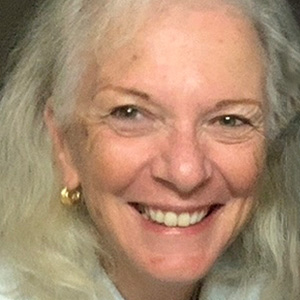
About me
I live on the Gold Coast and pretty much grew up here.
I have 3 children and 5 grandchildren and 1 great grandchild.
I’ve been fortunate to live overseas and enmesh myself in different cultures.
I love hiking, reading (more audible these days) , travelling and spending time with friends.
I share my home with two, very large giant schnauzers, Bear (10 ½ ) and Izzy (6).
Area of Experience
- Children
- Teens
- Adults
- Family theapy
Qualifications
- Bachelor of Social Science (Psy & Behaviour)
- Will have my Masters of Counselling completed mid next year (2 subjects to go)
- Extensive training in Play Therapy
- Sexualised Behaviours in children
- Sexual abuse